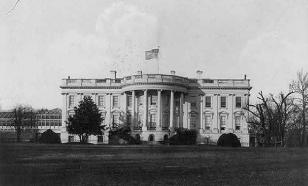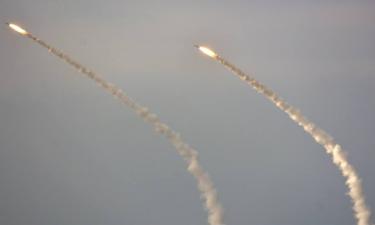Russian Admiral claims it was NATO submarine that rammed into Kursk 21 years ago
Admiral Vyacheslav Popov, the former commander of the Northern Fleet of the Russian Navy, said that the Kursk submarine (nuclear submarine K-141 Kursk) sank in 2000 as a result of the collision with a NATO submarine. The name of the Western submarine is known almost for sure, Popov said in an interview with RIA Novosti.
The ex-commander-in-chief of the Northern Fleet suggested that the submarine that collided with the Kursk was tracking the sub. The Western submarine could not ensure the required level of safety under the conditions of the sea and other circumstances, so it came too close to the Kursk. According to the admiral, the sub was later found off the coast of Norway.
Popov added that the manoeuvre of the Russian nuclear submarine could also lead to the "loss of contact." According to the admiral, he can reveal the name of the NATO submarine with almost 100 percent certainty, but said that he would not do it for a number of reasons.
"I know the name of the sub with a probability of 90 percent, but in order to name it publicly, one needs to provide evidence, which I can not do," the admiral said.
Interestingly, back in 2000, Popov called the collision with the NATO submarine his main version of the tragedy. In a documentary by journalist Arkady Mamontov, Popov said that the Kursk collided "with an unidentified submarine, which struck the most vulnerable area of our submarine, in unawareness, of course."
"I am deeply convinced that those were not intentional actions,” Popov then stressed.
However, Popov did not mention in the documentary that he was aware of the affiliation of the submarine that rammed into the Kursk, nor did he say anything about the name of the foreign submarine.
According to information from Russian and foreign media, US nuclear submarines Memphis and Toledo of the US Navy, as well as the Splendid of the British Navy were staying in the area of the naval exercises the day when the Kursk sank. The Russian Ministry of Defense asked the Pentagon for permission to inspect Memphis and Toledo submarines, but the US refused, having said that all the submarines were in working condition. A similar statement was then made by Great Britain, RIA Novosti reports.
Mysterious SOS signals from the bottom of the sea
The admiral also spoke about the knocking sounds that came from the place where the Kursk had sunk. He sent the recorded sounds to an acoustic laboratory for analysis. The analysis said that the nature of the sounds was mechanical, rather than human. Russian submarines did not have any mechanisms to produce mechanical SOS sounds under the water.
"Therefore, it was only a foreign submarine that could produce them,” he noted.
In July 2002, a Russian government commission presented an official report dedicated to the Kursk submarine disaster. The report said that the Kursk sank as a result of a thermal explosion of fuel components of the 65-76 torpedo, which subsequently detonated. In addition, the commission decided to blow up the wreckage of the submarine at the bottom of the Barents Sea. Specialists explained the detonation of the wreckage by the need to secure navigation, since unexploded torpedoes could still be at the bottom.
In 2020, journalists paid attention to the fact that the website of the digital library of the 42nd President of the United States, Bill Clinton, uploaded transcripts of his telephone and personal conversations with his Russian counterpart Vladimir Putin. The transcripts included a conversation about the Kursk submarine disaster. In particular, Putin told Clinton that the submarine crew was killed within 60 or 90 seconds.
"We couldnʼt tell the relatives, but there was a hole about two meters wide blown in the hull that flooded the first three sections of the sub. Iʼm not even sure how we can get the bodies out. There are a lot of cod in those waters, and there may not be any flesh on the bones. We tried to apply the brakes to all this furor, but some people are strange, and they just kept feeding it. Thatʼs just a fact of life," Putin said according to the published transcripts.
Kremlin declines any comment on the NATO submarine
Interestingly, the Kremlin declined to comment on the version about the collision with a NATO submarine. Kremlin's official representative Dmitry Peskov stressed that the investigation into the case had come to a final conclusion about the reasons for the incident.
"We leave it (the new version of the disaster absolutely without comment," Peskov stated.
The Kursk sank on August 12, 2000 in the Barents Sea 175 kilometers off Severomorsk at a depth of 108 meters. According to the official version, the tragedy occurred as a result of the explosion of a torpedo on board and the subsequent detonation of ammunition during naval exercises of the Northern Fleet. All 118 crew members were killed.
Subscribe to Pravda.Ru Telegram channel, Facebook, RSS!



